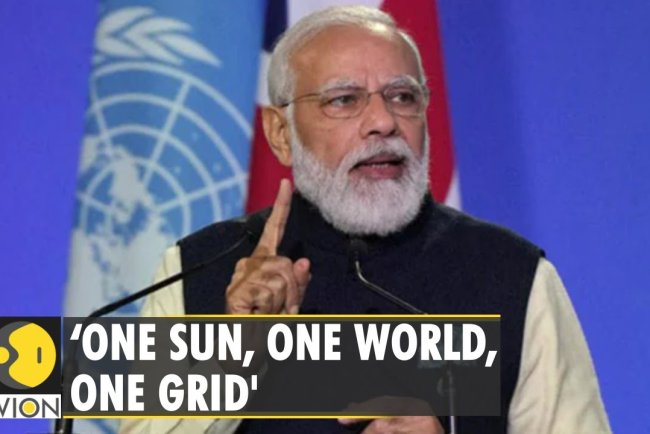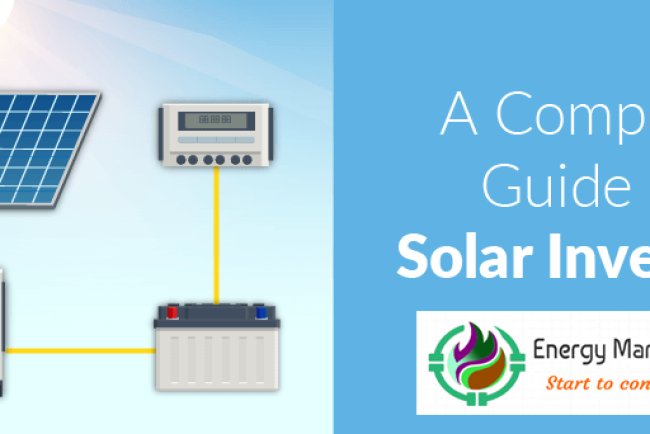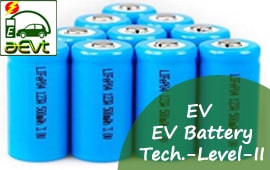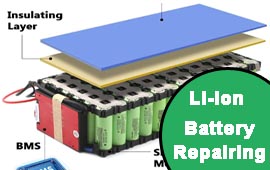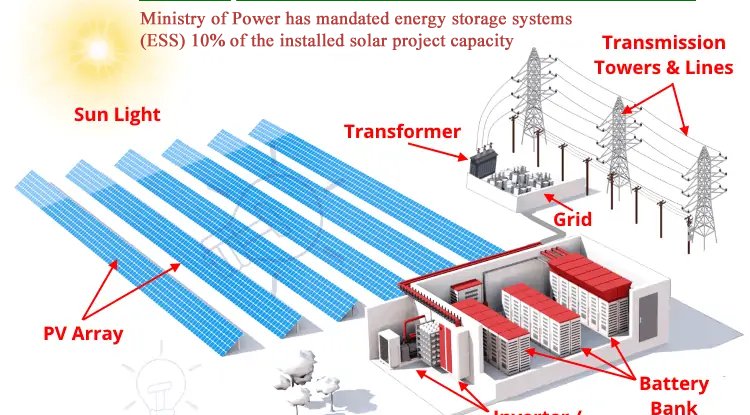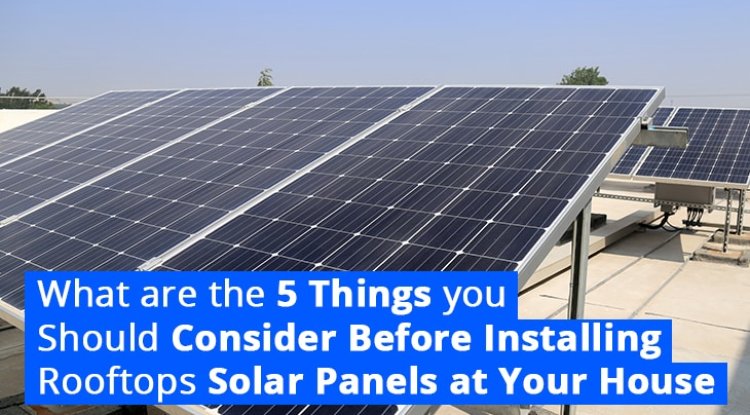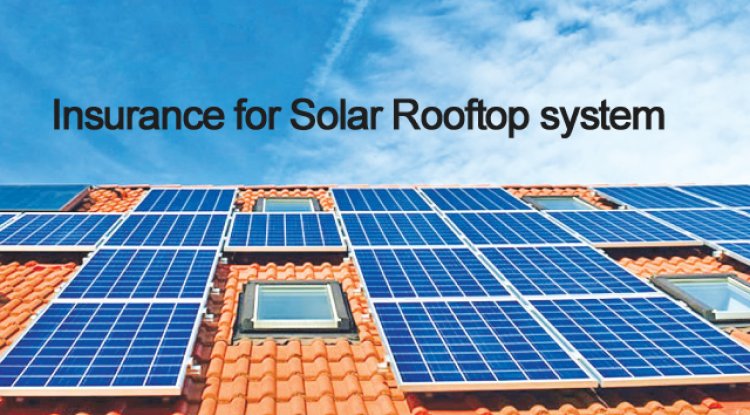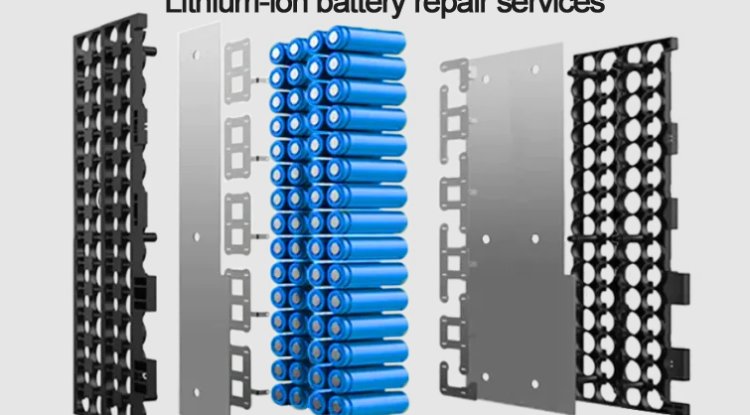PM Surya Ghar Muft Bijli Yojana Rooftop Solar Race in India
PR Newswire: India's "rooftop solar race" mean the rapid growth of residential solar installations, under the PM Surya Ghar Muft Bijli Yojana (PM-SGMEY). Instead, it is the world's largest domestic rooftop solarization scheme, aiming to install rooftop solar panels on millions of Indian households through subsidies and financing.
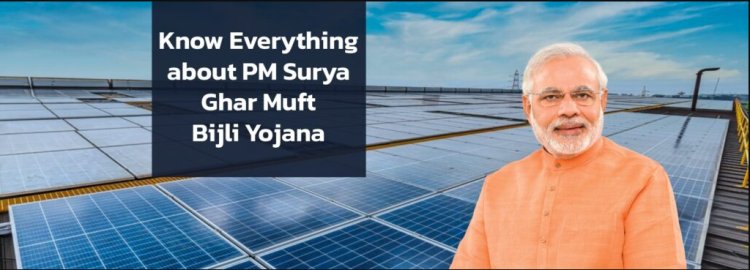
The world's largest domestic rooftop solar initiative, has achieved a historic milestone with 10 lakh homes now solar-powered as of 10th March 2025. As of July 2025, PMSGY has witnessed significant traction, with over 57.9 lakh applications for residential rooftop solar installations. The scheme has facilitated the installation of 4,946 MW of rooftop solar capacity till July 2025 across various states and Union territories.
Key milestones:
February 13, 2024
On February 13, 2024 Prime Minister Modi announced the scheme, formerly known as the PM-Surya Ghar: Muft Bijli Yojana. The initiative's target is one crore households, with the goal of providing free electricity.
February 29, 2024
On February 29, 2024 the Union Cabinet approved the scheme with an outlay of over ₹75,000 crore. It also confirmed that the scheme would subsume the previous Grid-Connected Rooftop Solar Phase II Programme.
March 16, 2024
The Ministry of New and Renewable Energy (MNRE) granted administrative approval for the scheme on March 16. The MNRE issued guidelines for the scheme, confirming that applications received from February 13 onward would be covered.
July 23, 2024
As of July 23, the National Portal recorded 1.28 crore registrations and 14.84 lakh applications.
August 2024
The government reported that registrations had increased significantly, noting a tenfold rise in the monthly installation rate compared to pre-scheme levels. The "Model Solar Village" component, designed to promote rooftop solar in rural areas, was also progressing, with ₹800 crore allocated for the initiative.
December 2024
By December 3, registrations on the National Portal had reached 1.45 crore, with 26.38 lakh applications received. At this point, 6.3 lakh installations had been completed in just nine months.
Gujarat leads implementation: Gujarat was highlighted as a top-performing state, with over 3.36 lakh installed systems generating 1,232 MW.
January 27, 2025
By January 27, 2025, the number of solar installations had reached 8.46 lakh households. The government reported that ₹4,308.66 crore in Central Financial Assistance had been disbursed to 5.54 lakh beneficiaries.
March 13, 2025
On March 13, the PM Surya Ghar project crossed a major milestone, with 10 lakh solar-powered homes completed. As of mid-March, ₹4,770 crore had been disbursed as subsidies to 6.13 lakh beneficiaries.
June 2025
In June 2025, MNRE had issued a Call for Proposals for the Innovative Projects component under PM Surya Ghar Yojana, ( MNRE. Innovative Projects Component under PM Surya Ghar: Muft Bijli Yojana. June 2025)
September 2025
Public Sector Banks sanctioned over 5.79 lakh loan applications, amounting to ₹10,907 crore.
Financial Benefits:
Residential RTS payback period across different states under PM-Surya Ghar subsidies
The payback period for a 3kW residential rooftop solar (RTS) system varies by state, with an average range of 3 to 6 years,
Payback Period = Total System Cost / Annual Savings
- Higher electricity rates mean greater savings, which shortens the payback period. States with higher tariffs will generally have a faster payback.
- Central and state-level subsidies significantly reduce the initial investment, leading to shorter payback periods.
- How much electricity you consume and how much a 3kW system can generate, also a big factor in payback.
Rooftop Solar investment through installing a rooftop solar system is becoming a key economic move for homeowners throughout India. The cost of solar technology in India has experienced a significant decline, particularly from 2010 to 2024, with the price of solar modules dropping by around 82% to 85%. This substantial decrease has notably reduced the overall expenses of utility solar PV plants. The ‘Rooftop Solar Scheme’ or ‘PM Surya Ghar Muft Bijli Yojana’ further enhances affordability by providing substantial subsidies directly into people’s bank accounts, covering up to ₹78,000 of the installation costs for a 3KW solar system .
The subsidies provided under PMSGY for rooftop solar installations have significantly reduced the payback period to 30 months for 3 kW rooftop solar systems, whereas without any subsidy ROI approximately 54 months, and with additional state-level subsidies the payback period has been further reduced 18 months to 30 months. (Assumptions: Overall cost = INR 1.7 lakh for 3kW; Benchmark cost = INR 1.45 lakh for 3kW; and Electricity charge = INR 7/ unit)
State-specific additional incentives:
- Gujarat: Offers an additional state subsidy of ₹10,000–₹20,000 for residential consumers.
- Maharashtra: The SMART solar scheme provides up to 95% subsidy for select consumers.
- Ladakh: INR 20,000/kW up to 2 kW, INR 50,000 for 3 kW
- Uttarakhand INR 17,000/kW up to 3 kW
- Delhi INR 10,000/ kW up to 3kW
- Uttar Pradesh INR 15,000/ kW up to 2kW
- Assam INR 15,000/ kW up to 3kW
- Goa 30% of benchmark cost up to 3kW
- Other states: Jharkhand also provide residential consumers with additional capital subsidies, although these may be time-limited.
Key stakeholders of PM Surya Ghar project:
- Beneficiaries: Residential households that own a house with a suitable roof, have a valid electricity connection, and are Indian citizens.
- Central government: The Ministry of New and Renewable Energy (MNRE) is the nodal agency, with the Ministry of Skill Development & Entrepreneurship (MSDE) involved in capacity building.
- DISCOMs: Distribution companies (DISCOMs) act as the SIA at the state level, managing tasks like vendor registration, inspections, and facilitating net meters.
- Financial Institutions: Banks and other financial institutions play a role in providing financial support and managing the process.
- Service Providers:
- Vendors: Companies that supply and install solar rooftop systems.
- Original Equipment Manufacturers (OEMs): The manufacturers of solar panel components.
- Training Partners: Organizations involved in training and skill development for the installation and maintenance of solar systems.
To become a vendor for the PM Suryaghar Muft Bijli Yojana, vendor must complete the "Rooftop Solar PV (Installation & Maintenance)" training. The Firm has sufficient (at least three) technical manpower trained in the skills required to execute the work of installation of rooftop solar plants. This training includes both institutional and on-the-job training components. After training and successful assessment, your company can then register on the PM Surya Ghar vendor portal.
Interest rate and tenure comparison of residential RTS financing schemes by banks:
Interest rates
Interest rates for RTS financing schemes vary depending on whether the solar cost is included in a home loan or financed separately. Leading public and private sector banks such as the State Bank of India (SBI), Punjab National Bank, Canara Bank, Bank of Baroda, HDFC Bank, and IDBI Bank offer dedicated loan products for residential rooftop solar systems. Alongside banks, non-banking financial companies (NBFCs) and fintech firms including Ecofy, Bajaj Finserv, Credit Fair, My Sun, Electronica Finance Limited and others have also entered the rooftop solar financing space. However, their products typically carry slightly higher interest rates and shorter loan tenures compared to those offered by banks.
Interest rates in these schemes generally start at 6% and can go up to 12.15% for tenure of up to 10 years.
| Bank | Scheme | Interest Rate |
| State Bank of India (SBI) | Standalone residential solar rooftop finance scheme For individuals installing solar panels on an existing home. |
9.65% to 10.65% p.a., based on Credit score (CIBIL) score. |
| State Bank of India (SBI) | Composite home loan For individuals purchasing or constructing a new home with a solar installation included in the project cost. |
Starting at 9.15% p.a., linked to the RBI Repo Rate and Credit score (CIBIL) score. |
Tenures
The repayment tenure for RTS financing is determined by the type of loan scheme.
| Bank | Scheme | Maximum loan tenure |
| State Bank of India (SBI) | Standalone residential solar rooftop finance scheme | Up to 5 years. |
| State Bank of India (SBI) | Composite home loan with solar installation | Up to 30 years, co-terminus with the home loan. |
| Canara Bank | Residential solar rooftop finance | Up to 30 years or up to 75 years of the borrower's age, whichever is earlier. |
Vendors
Under PMSGY, vendors serve as the primary delivery partners responsible for supplying, installing,
and maintaining rooftop solar systems. As on March 5, 2024 by PM Surya Ghar Yojana Team, Registered Vendors
| State | DISCOM | No of Vendor | Remarks |
| ANDAMAN and NICOBAR ISLANDS | Electricity Deptt. of Andaman & Nicobar Islands | 780 | |
| Andhra Pradesh | Eastern Power Distribution Company of AP Ltd Southern Power Distribution Company of AP Limited |
57 | |
| Assam | Assam Power Distribution Company Limited | 21 | |
| Bihar | North Bihar Power Distribution Company Limited South Bihar Power Distribution Company Limited |
69 | |
| Chandigarh | Chandigarh Electricity Department | 8 | |
| Chhattisgarh | C S P D C L TEED |
39 | |
| Goa | Electricity Deptt. of Goa | 34 | |
| Gujarat | Madhya Gujarat VIJ Company Ltd. | 779 | |
| Dakshin Gujarat Vij Co.Ltd (DGVCL) | 819 | ||
| Paschim Gujarat Vij Co. Limited | 849 | ||
| Uttar Gujarat Vij Company Limited | 804 | ||
| Torrent Power Limited – Surat | 789 | ||
| Torrent Power Limited – Ahmedabad | 838 | ||
| Haryana | Uttar Haryana Bijli Vitran Nigam Limited | 83 | |
| Dakshin Haryana Bijli Vitran Nigam Limited | 72 | ||
| Himachal Pradesh | HPSEB Limited | 12 | |
| Jharkhand | Jharkhand Bijli Vitran Nigam Limited TATA STEEL UTILITIES AND INFRASTRUCTURE SERVICES LIMITED |
13 | |
| Karnataka | Bangalore Electricity Supply Company Ltd. (BESCOM) | 68 | |
| Mangalore Electricity Supply Company Limited | 15 | ||
| Hubli Electricity Supply Company Ltd. (HESCOM) | 25 | ||
| Gulbarga Electricity Supply Company Ltd. (GESCOM) | 74 | ||
| Chamundeshwari Electricity Supply Company Ltd. (CHESCOM) | 13 | ||
| Kerala | Kerala State Electricity Board | 641 | |
| Thrissur Corporation | 25 | ||
| Ladakh | Ladakh Power Development Department | 6 | |
| Lakshadweep | Electricity Deptt. of Lakshadweep | 4 | |
| a | |||
| a | |||
| a | |||
| a | |||
| a |
RE News: Renewable energy Latest News & Resources - including solar, wind, hydropower, biofuels and others new and appropriate energy generation technology.

